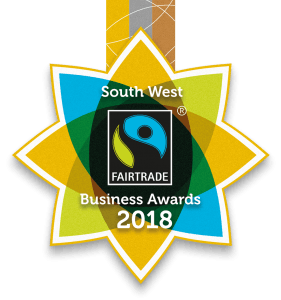Intensive farming has had a negative impact on our countryside over the last 50 years. As productivity has increased on farmland, so our wildlife has been decimated.
Productivity is not the problem though, it’s our current land management systems and practices that are the issue. Productivity and progress do not have to come at the cost of the environment.Through the abandonment of mixed farming systems, increased use of pesticides and fertilisers, intensification of livestock grazing and the loss of habitats, like hedgerows and ponds, we’ve seen significant loss in biomass of flora and fauna.
Farmland bird numbers have decreased dramatically since the 1970s, resulting in losses in yellowhammer, lapwing and skylark populations. In a recent State of Nature Report (2016) the UK was ranked 189/218 on the Biodiversity Intactness Index – the method of measuring how damaged nature is. About 72% of the UK is in land management for agricultural purposes and if we don’t change the way we farm, this will spell disaster for our wildlife and natural habitats.
Between 1990 and 2010 we have seen the area of crops treated with pesticides and fertilisers increase by 53%. Organic farms are an oasis of life on our nation’s countryside, often seeing significant increases in butterfly, bee and bird indexes above the national farm average – in some cases in excess of 100%.
At The Farm we demonstrate the power of nature friendly farming. We regard ourselves as stewards of the environment for the land we farm; managing our hedgerows, field margins and buildings in a way that encourages a strong and healthy biodiversity. We plant pollinators and wildflowers, put up owl boxes and mammal homes and ensure we allow our hedgerows to fruit to provide food for birds.
We welcome a whole host of animals here – badgers, deer, rabbits, swallows, swifts, bees and butterflies. We are constantly refining our farming techniques to provide better habitats for wildlife, which in turn will have a positive impact on our farming. For example, in our polytunnels and on our fields we have plants that attract 'beneficials’ (insects that help naturally control pests).
Working here, you get to marvel at the joys of the wildlife across the seasons. From the birdsong in the mornings, to seeing swallows swooping outside your window catching flies, or the deer running across the field in the evening.
There is always something to take your breath away. And we cannot let that disappear.
Further reading:
State of Nature Report 2019
Nature Friendly Farming Network
Friends of the Earth Policy - Why Supporting Nature Friendly Farming is Essential to Productivity
Hedgerows:
Hedgelink - The Importance of Hedgerows
Countryfile - The Role of British Hedgerows
RSPB - The Value of Hedgerows
Pollination
The World Bee Project - Pollination, Food and The Environment
Ted Talks - The Hidden Beauty of Pollination
Insects:
RHS - Beneficial Insects and Bugs
Birdsong:
Bath dawn chorus recording














